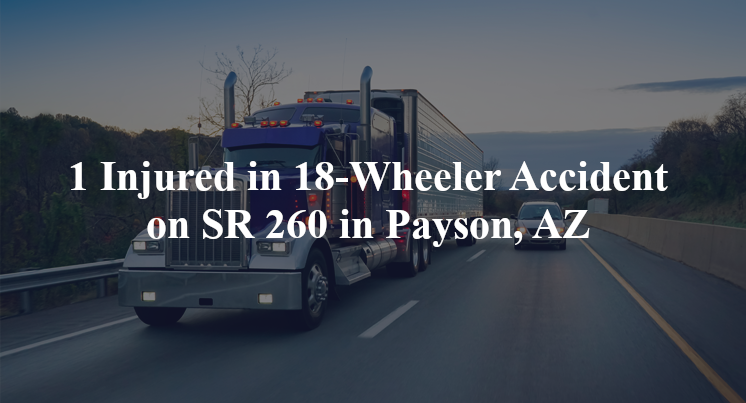1 Injured in 18-Wheeler Accident on SR 260 in Payson, AZ
Payson, AZ — January 29, 2025, One person was injured following a car accident that occurred at around 2:30 A.M. on State Route 260.

An investigation is underway following an 18-wheeler accident that left one person injured during the early morning hours of January 29th. According to official reports, an 18-wheeler was traveling on SR 260 near SR 87 when the truck suffered a rollover accident and shut down the east and westbound lanes of SR 260 for hours.
When first responders arrived on the scene they found that one person from the semi was injured and emergency personnel transported them to the hospital for treatment. At this time it remains unknown what caused the truck to overturn, but authorities have suggested it was a result of the trailer being overloaded with weight. This remains an ongoing investigation and more details may be released in the future.
Commentary by Attorney Michael Grossman
Whenever I come across a report of a serious truck accident like this, my first thought is that I hope the injured person makes a full recovery and that investigators are able to determine exactly what caused the crash. While authorities have suggested that an overloaded trailer may have played a role, experience has taught me that truck rollovers are rarely caused by just one factor. To truly understand what happened, there are three critical questions that must be asked.
The first question is whether authorities conducted a thorough investigation of the crash. Truck rollovers are complex events that require a detailed reconstruction to determine the exact sequence of events. While law enforcement officers do their best with the resources available to them, their primary responsibility is clearing the roadway and restoring traffic flow, not conducting an exhaustive crash analysis. That means important details—such as whether the cargo was improperly loaded, if the driver took evasive action due to road conditions, or if another vehicle contributed to the incident—could be overlooked. A full investigation should include an examination of skid marks, witness statements, and a review of the truck’s maintenance records.
The second question that must be asked is whether anyone has considered the possibility of a vehicle defect contributing to the crash. If the truck was indeed overloaded, that alone wouldn’t necessarily cause a rollover unless there was another mechanical issue at play. Did the brakes or suspension fail under the excessive weight? Did the steering system malfunction? Could a tire blowout have contributed to the loss of control? These are questions that can only be answered through a forensic examination of the truck before it is repaired or taken out of service.
The final question is whether all available electronic data related to the crash has been collected. Modern commercial trucks are equipped with electronic control modules (ECMs) that record vital information such as speed, braking, and steering inputs in the moments leading up to a crash. Additionally, if the truck had an onboard camera or GPS tracking system, that data could provide valuable insight into what happened. If this data isn’t preserved quickly, it can be lost or overwritten, making it impossible to get a full picture of the crash.
At the end of the day, truck rollovers are serious incidents that warrant a careful and thorough investigation. It’s not enough to assume that an overloaded trailer was the sole cause—there may be other factors that contributed to the crash, and the injured party deserves to know exactly what happened. By ensuring that all three of these critical questions are fully explored, investigators can provide clear answers and help prevent similar accidents in the future.

“These are essential reads for anyone dealing with the aftermath of a truck wreck”– Attorney Cory Carlson